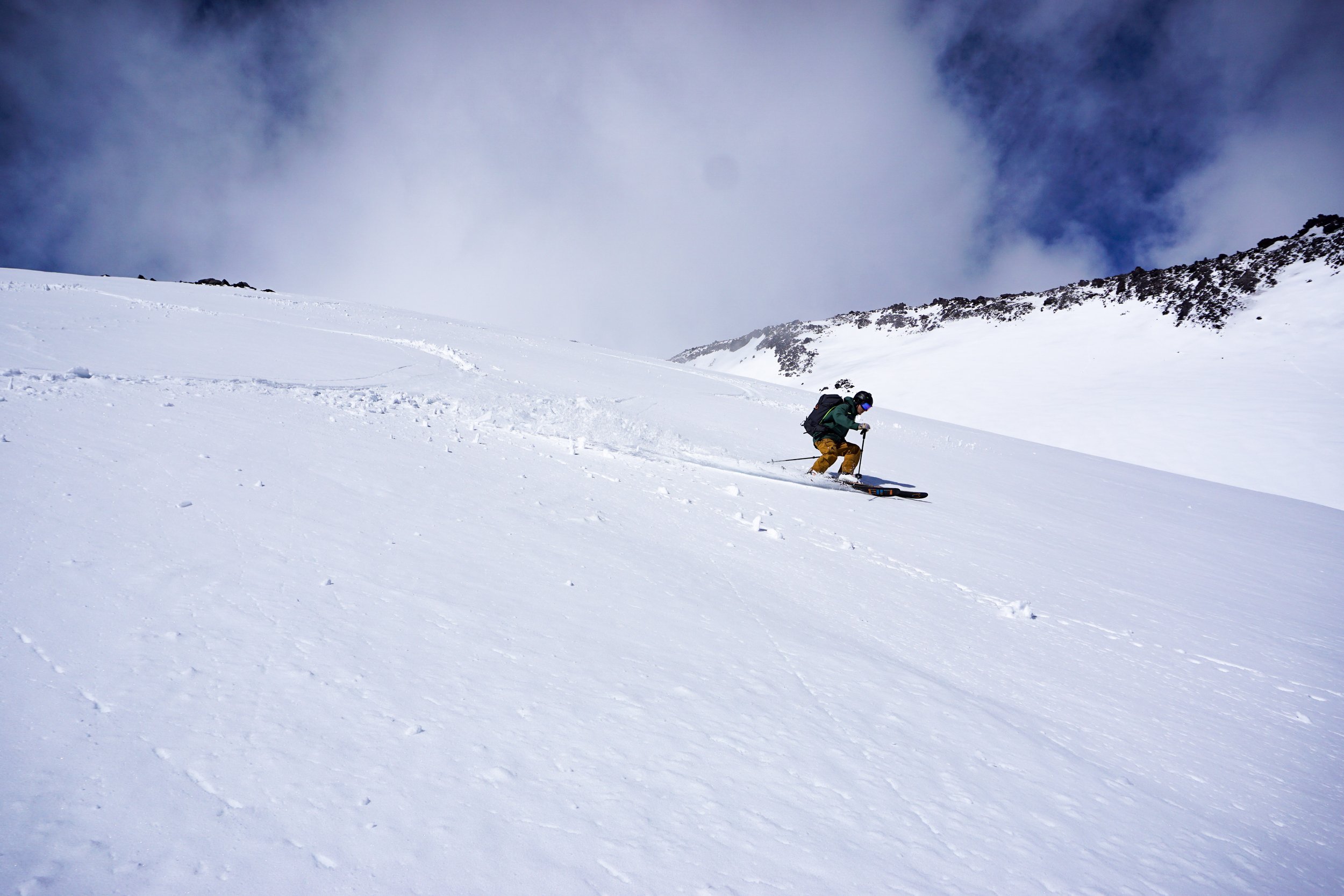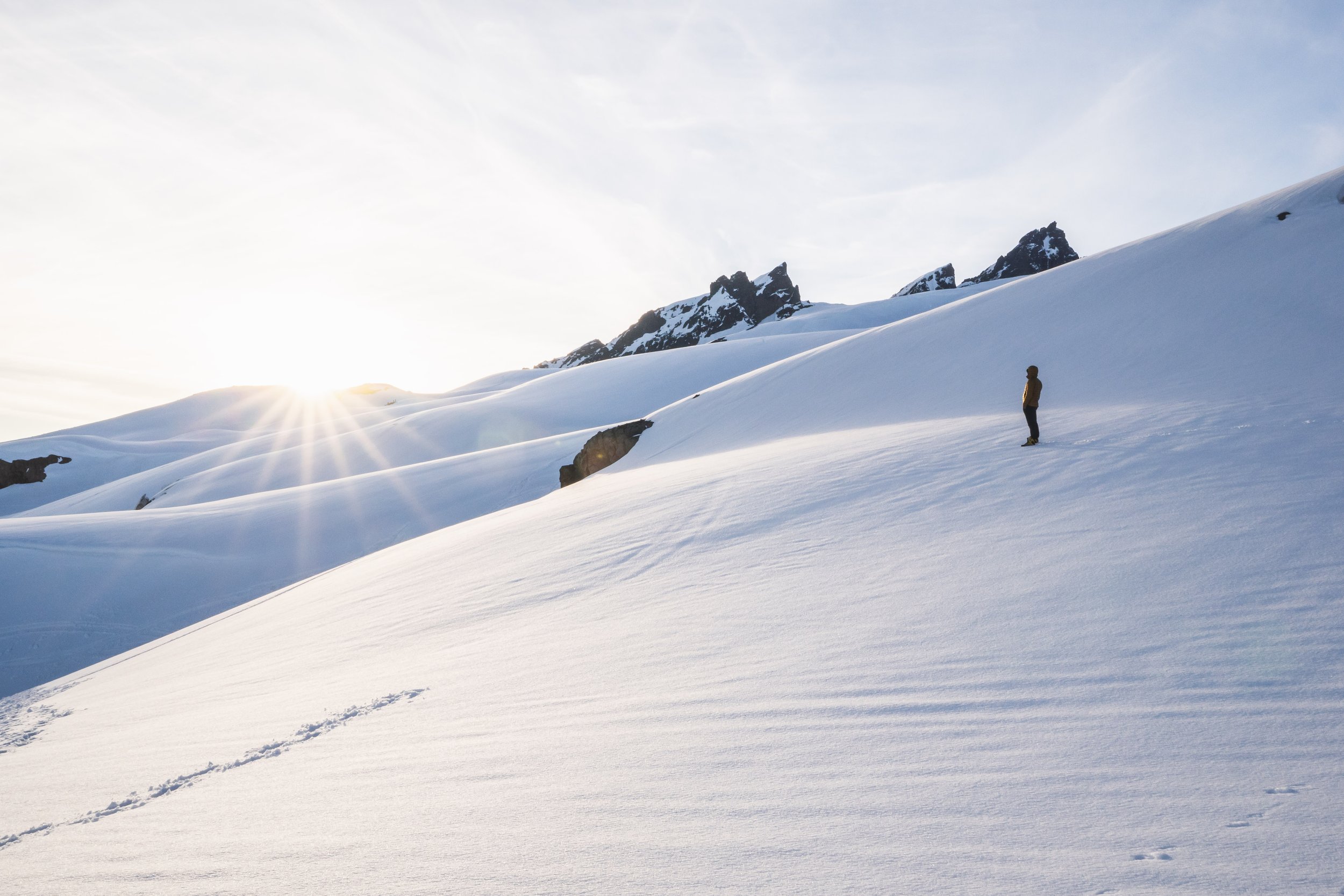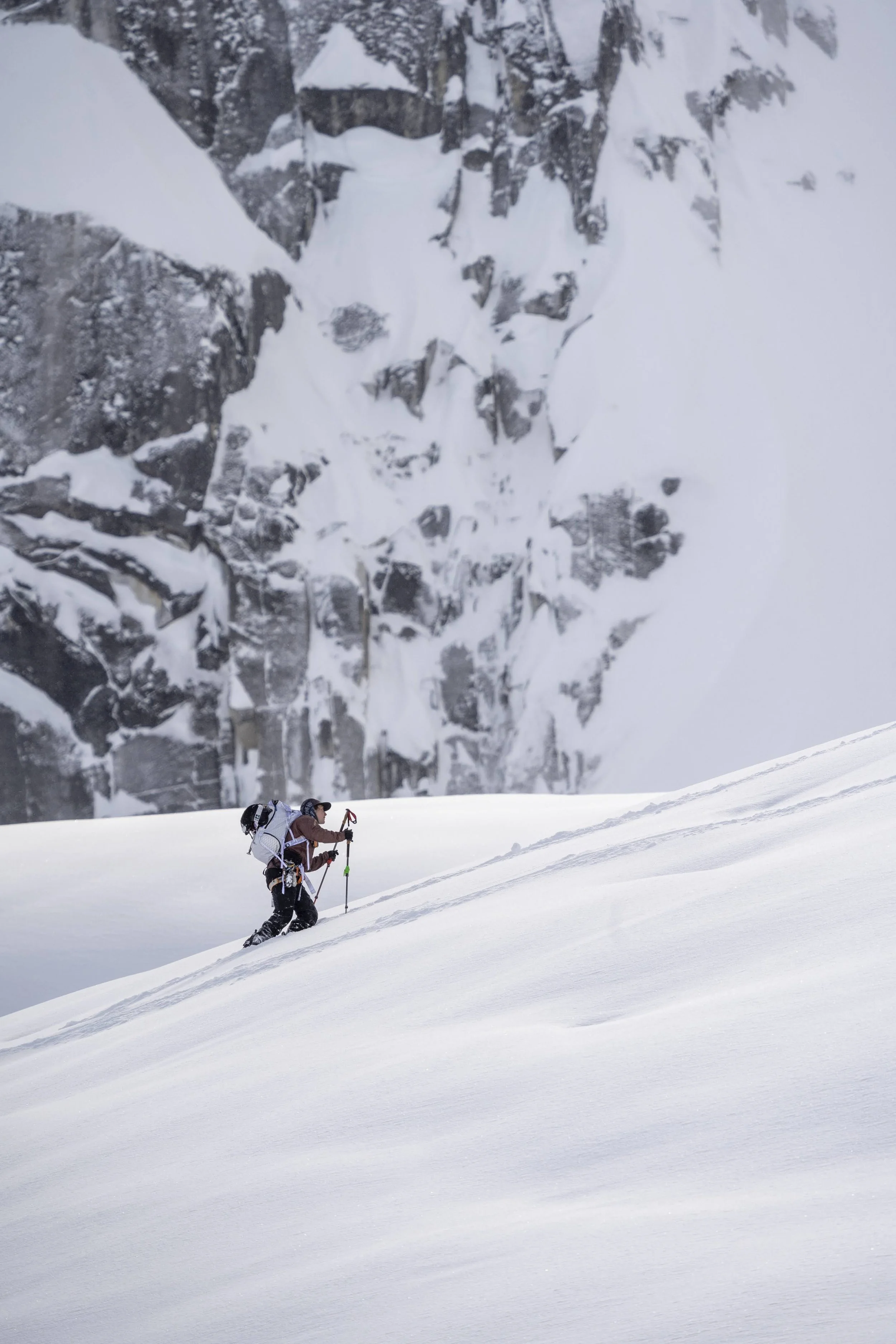
Mount Baker Ski Descent
2 Days

Ski one of Washington’s tallest volcanoes with us. Standing at 10,781ft, Mount Baker has over 7,000ft of vertical relief, making for a beautiful and long ski descent. Come push yourself to new heights on this 2-day trip.
-
Join Upward Transitions Institute for a two-day adventure on one of the Pacific Northwest’s most iconic volcanoes. Standing at 10,781 feet, Koma Kulshan (Mount Baker) offers a stunning glaciated landscape, panoramic views from the Salish Sea to the North Cascades, and one of the finest ski descents in the region. This trip is designed for mountain lovers seeking a blend of skill-building, teamwork, and unforgettable turns in big, beautiful terrain.
At Upward Transitions Institute, we see mountains as both teachers and companions. This trip blends technical growth, shared challenge, and the joyful magic that only a glaciated peak can offer. You’ll leave with new skills, powerful memories, and a deeper confidence in your own movement through big mountain spaces.
We choose from three standard routes: the Easton Glacier, Coleman-Demming Glacier, and Squak Glacier. Guides will decide the best route based on current conditions before the beginning of the trip.
-
This trip is designed for skiers with at least one season of backcountry skiing experience and able to ski double black diamond terrain. If you are looking to expand your skillset to take on bigger terrain on skis, and advance your ski mountaineering journey, this trip is for you.
You must be able to skin 5,000ft in a day.
No prior glacier experience is required.
-
Day 1 — Ascent to High Camp + Skills Review
We’ll meet in Bellingham in the morning, pack our overnight gear, and begin the skin up to a high campsite. Along the way, your guide will cover glacier travel considerations, pacing, layering strategies, and efficient uphill technique.
At camp we’ll enjoy a warm meal, watch alpenglow paint the seracs gold, and review essential skills:
Crampon and ice axe use
Rope travel basics on glaciated terrain
Summit day pacing and what to expect
This evening on the mountain is all about settling into the rhythm of expedition travel and soaking up the magic of the alpine.
Day 2 — Summit Push + Ski Descent
We’ll start early under headlamp glow, climbing toward the Roman Wall as the horizon begins to brighten. The ascent includes moderate glacier travel, steady climbing, and the final push to the summit plateau, where we’ll celebrate with breathtaking views stretching into Canada.
After transitioning, we begin what we came for: a flowing, 5,000–7,000 ft descent back toward the trailhead. Depending on conditions, expect a mix of velvet corn, smooth glacial pitches, and playful spring skiing. This is where the mountain comes alive—and so do you.
We return to the cars by early afternoon, tired in the best way and full of that unmistakable post-volcano glow.
-
After signing up, you will receive an informational packet of our meeting location, what to expect, a packing list, and other trip information that will be helpful for you to review.
One week before the trip, your guide will email you more specific information about our route and plan.
-
AMGA-trained ski guide
Wilderness Permits
Breakfast and dinner on the mountain
Skills coaching throughout the trip
Group glacier gear (ropes, snow pickets, technical equipment)
Group camp gear (stove, tent if needed)
A supportive and inclusive environment that’s core to Upward Transitions Institute
Not included:
Personal gear (Skis, climbing equipment, ect)
Transportation
Trip/Rescue Insurance
Price: $900
2026 Dates:
May 30-31
June 2-3
June 13-14
Difficulty: Intermediate
Upward Transitions Institute holds a Temporary Use Permit within Mt. Baker-Snoqualmie National Forest and Mt. Baker Ranger District
“In accordance with Federal law and U.S. Department of Agriculture policy, this institution is prohibited from discriminating on the basis of race, color, national origin, sex, age or disability. To file a complaint of discrimination: write USDA, Director, Office of Civil Rights, Room 326-W, Whitten Building, 1400 Independence Avenue, SW, Washington, D.C. 20250-9410 or call (202) 720-5964 (voice and TDD).”



